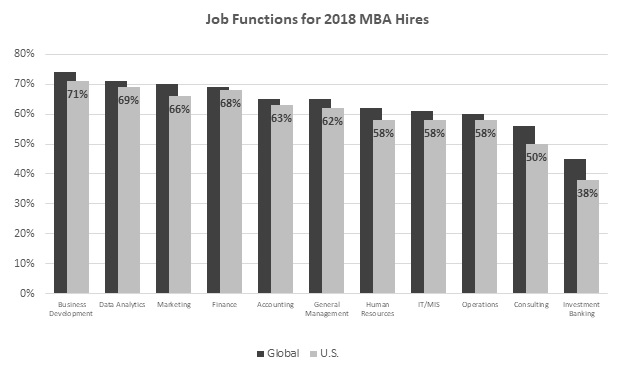According to the latest GMAC Corporate Recruiters Survey, competency in communication, strategy, and data analysis are the most in-demand skills for MBA recruits. And corporate recruiters predict they will only grow in importance over the next five years. The survey includes responses from 1,028 respondents in 34 countries. Over half of the respondents come from Fortune 500 companies.
Within the survey, respondents who named communication and technology as important future skills were also asked to provide detail on the specific areas of expertise that they predict will grow in importance. Within communication, 81 percent of employers selected cross-cultural competence, 77 percent chose multilingualism, and 75 percent chose active listening. Within technology, 80 percent of employers selected Web3/Blockchain/VR, 75 percent selected cloud-based technology, and 74 percent selected data visualization, AI and machine learning, and statistical analysis.
The survey also asked employers to assess graduates’ preparedness in these skills. Among U.S.-based employers, fewer than half agreed that graduates are well or adequately prepared in the areas of active listening, negotiating, nonverbal communication, multilingualism, cross-cultural competence, and conflict resolution. While U.S. companies were slightly more positive on graduates’ skills in technology, they still registered lower than other regions. Only 54 percent of U.S. employers agreed that graduates are adequately prepared, compared to 65 percent globally.



